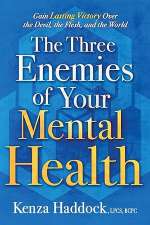Read Part 2 of this article at this link.
Do you ever find yourself staring at the ceiling fan, trying to fall asleep? Or perhaps spend the first hour or so of the night tossing and turning, hoping to catch some shuteye? Do you ever wake up in the middle of the night and find yourself calculating how many hours of sleep you can still get if you could just fall back asleep? Or do you perhaps wake up in the middle of the night, unable to fall back asleep, only to doze off just in time for your alarm to sound?
If these scenarios resonate with you, you are not alone.
Insomnia is a pervasive issue in our modern society that affects a staggering 40 million Americans each year. Recognizing its severity, the Center for Disease Control has labeled it a “serious public health problem.” This two-part article will uncover the top four mental health-related factors that affect your ability to fall asleep and/or stay asleep. In today’s article, you will learn about the fourth and the third most common mental-health causes for insomnia. In Part 2 of the article, we will uncover the second and first most common mental health reasons you experience insomnia. Let’s get started!
Breaking news, Spirit-filled stories. Subscribe to Charisma on YouTube now!
4. Unprocessed Grief
Coming in at No. 4 is unprocessed grief. Processing loss is not something we as a society are taught to do. With the rise of social media, electronics have played a major impact in impeding our ability to process loss, as they provide an easy way for us to numb our emotions, and distract ourselves in the hope that the pain will pass away. Much like food that goes undigested has the capacity to make us sick, unprocessed grief remains stuck in our mind and causes undue stress on us, ultimately affecting our ability to fall or remain asleep.
Loss is a painful part of our life on this side of eternity. God doesn’t want us to go through it alone, and he certainly doesn’t want us to live in denial of our loss. Jesus set the example of an expected response to loss when his dear friend Lazarus passed away. John 11:35 says, “Jesus wept,” to which people responded, “See how He loved him!”, referring to Jesus’ love toward Lazarus.
It’s normal and even healthy to go through a period of grief as a result of a loss. The Holy Spirit is referred to in John 14:16 as “the Comforter.” The Holy Spirit wants us to lean on Him and to reach out to others in times of grief. He knows exactly what you need in the way you need it. Reach out to Him and experience His tangible, comforting presence. It is through experiencing His comfort that we’re able to comfort those around us (See 2 Cor. 1:4).
3. Post-Traumatic Stress Disorder
When we experience trauma, our brain goes into fight or flight mode, meaning your body and your brain go into survival mode where you become very alert and threat-conscious. Once this event takes place, a significant amount of cortisol, a stress chemical, is released in your body, disrupting the normal production of melatonin, the hormone that promotes sleep. Cortisol and melatonin have an inverse relationship; when one is high, the other is low. The way God created your body is for your cortisol to peak first thing in the morning, to help you wake up, and for your melatonin to peak at night to help you sleep.
If you haven’t processed a traumatic experience, your brain thinks you need to stay vigilant and produce cortisol to protect you from perceived threats. Over time, you may find yourself feeling exhausted physically yet unable to shut off your brain. When this happens, I want to encourage you to go in prayer with the Lord and ask yourself if there are any traumas you have either seen or heard that are causing your sleep disturbance. The Holy Spirit knows you better than you know yourself (See Rom. 8:26-27.) A good rule of thumb is to track back to when the insomnia started and ask yourself what was going on around that time.
For more, find Part 2 of this article here.
Join Charisma Magazine Online to follow everything the Holy Spirit is doing around the world!

Kenza Haddock, LPCS, BCPC, is a licensed professional counselor supervisor and accredited clinical trauma specialist with expertise in treating complex mental health conditions through both clinical and biblical methods. A former Muslim, she has spoken at conferences and churches and been featured in numerous news outlets regarding the intersection of Christianity and mental -health counseling. Haddock and her husband own Oceanic Counseling Group LLC, an outpatient mental health agency headquartered in South Carolina. She was also a co-founder of the #healSC campaign, which raised awareness about mental health issues. Her new book, “The Three Enemies of Your Mental Health,” releases this October and is now available for preorder through Amazon.








Leave a Comment
You must be logged in to post a comment.